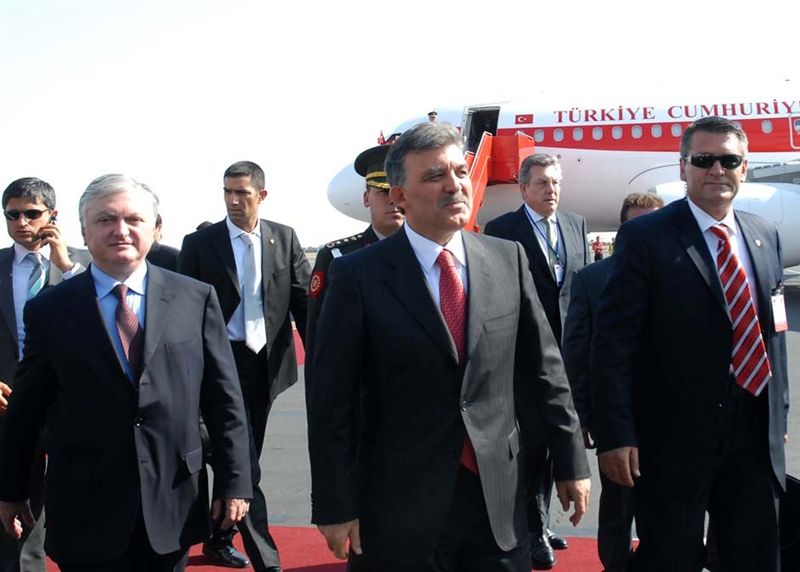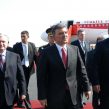
Ankara and Yerevan Prepare for the Signing of Historic Protocols
Publication: Eurasia Daily Monitor Volume: 6 Issue: 184
By:

As Turkey and Armenia enter the last phase of their normalization process which has intensified since February, both parties are actively preparing to welcome each other. In late September, the Turkish Prime Minister Recep Tayyip Erdogan disclosed that the Armenian and Turkish foreign ministers would sign the two protocols on October 10. On August 31, Ankara and Yerevan announced that they had agreed to start internal political consultations on the two protocols (the “Protocol on the Establishment of Diplomatic Relations” and the “Protocol on the Development of Bilateral Relations”), which were initiated in the course of their talks under Swiss mediation (Today’s Zaman, October 7).
The Turkish press reported that there was a setback in the ongoing normalization process between Ankara and Yerevan following a delay in the official announcement from Bern on the exact date for signing the protocols and re-opening the border. However, Turkish diplomatic sources dismissed the reports saying: “Here, in Ankara, we have not noticed any problems or setbacks regarding the process. We are ready to pack on Saturday morning and travel to Switzerland for the ceremony” (Today’s Zaman, October 7).
As the date for signing the protocols draws nearer, both governments are attempting to ease the tone of domestic criticism from various factions. The Armenian President Serzh Sargsyan is trying to convince the Armenian diaspora in Europe and the United States to support the rapprochement. In New York and Los Angeles, the nationalist Armenian diaspora staged protests against Sargsyan, accusing him of betraying Armenian identity and the future of Armenia (TRT, October 5, Milliyet, October 5). In response to the diasporas’ criticisms, Sargsyan stated that: “Turkey and Armenia’s borders should be opened first, and then we need to normalize our relations. We will see whether Ankara is sincere in its efforts to restore its ties with Yerevan” (Hurriyet, October 7).
It appears that Armenian politicians, despite the country’s economic and political isolation, regard the views of its diaspora very seriously. One of the major debates in the Armenian parliament relates to whether they support the process. “In reply to questions about the Armenian diaspora supporting Armenian-Turkish rapprochement, as well as the protocols, I would like to note that 90 percent of American Armenians polled (100,000 Armenian families) are opposed to ratifying the protocols,” Armenian Revolutionary Federation (ARF) Dashnaktsutyun Parliamentary Faction Leader Vahan Hovhannisyan told parliament on October 6. According to Hovhannisyan, protests are also likely in Armenia (www.panarmenian.net, October 6). Moreover, at the initiative of the ARF, 12 political parties and organizations issued an announcement protesting against the Armenia-Turkey protocols, calling for changes to the document: “The need to join forces and act together is apparent, and this initiative is aimed at ending the process based on the pre-determined protocols,” said ARF Supreme Council of Armenia Chairman Armen Rustamyan (www.asbarez.com, October 6).
In an effort to deal with the opposition among the Armenian diaspora President Barack Obama telephoned Sargsyan and offered his support for the normalization process (Hurriyet, October 7). While Obama backs the rapprochement, some Democrat senators in the U.S. Congress echo these concerns. Senate Foreign Relations Committee member and outspoken advocate of the international recognition of the Armenian “genocide,” Senator Bob Menendez (D-NJ), described provisions in the protocols to create a historical commission as “frankly absurd.” Expanding on his concerns over this provision, he called such an action “an insult to the memory of the victims. It is an insult to the top scholars who have clearly spoken on this issue and issued their unequivocal conclusions” (www.asbarez.com, October 3).
On the Turkish side, it appears that the government by cooperating with the Azerbaijani authorities has secured domestic support. Recently the Foreign Minister Ahmet Davutoglu visited opposition party leaders and informed them about the protocol. Despite some minor criticism toward the protocol, the main opposition Republican People’s Party (CHP) leader Deniz Baykal recognizes the achievement of Turkish diplomacy (www.nethaber.com, September 16). The only exception that stirs up any public discomfort toward rapprochement stems from the Nationalist Action Party (MHP). MHP leader Devlet Bahceli has refused to meet Davutoglu in order to discuss the issue (Sabah, September 12).
Although the Turkish government has avoided harsh criticism from the major political parties, the critical threshold in the process might be the Turkey-Armenia soccer match on October 14. As the rapprochement started when the Turkish President Abdullah Gul visited Armenia to watch a Turkey-Armenia soccer match in February, the final diplomatic step is expected when Sargsyan arrives in Turkey for this event. However, the game will be played in Bursa, where Turkish national aspiration is rising. Recently soccer fans in Bursa insulted the soccer team in Diyarbakir, a predominantly Kurdish city, and labeled them as terrorists.
Due to Turkish nationalist slogans being used against the Kurdish soccer team, the Turkish authorities fear Sargsyan and the Armenian national soccer team being similarly embarrassed. To prevent this, Gul’s office has arranged meetings with the relevant authorities to explain the sensitivity of the situation. Thus, it is prohibited to display an Azerbaijani flag or political slogans in the stadium (Yeni Safak, October 7).
Despite the fact that public discomfort toward the rapprochement varies on both sides, it appears that the governments are determined to sign this protocol to restore relations. More importantly, international political actors support the process, which will ease some of the domestic pressures on the governments of Armenia and Turkey.




